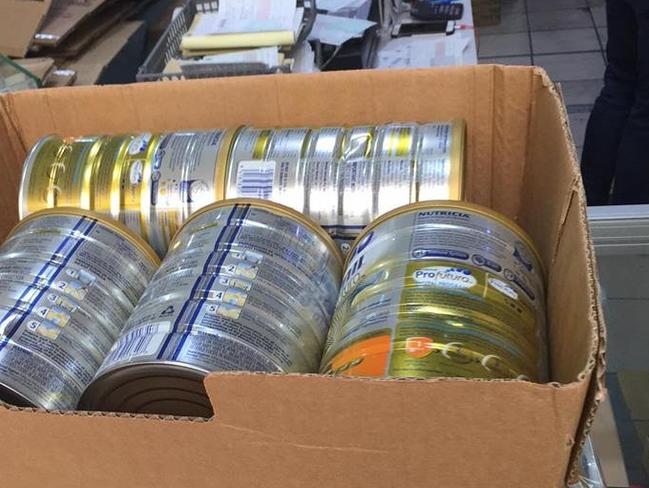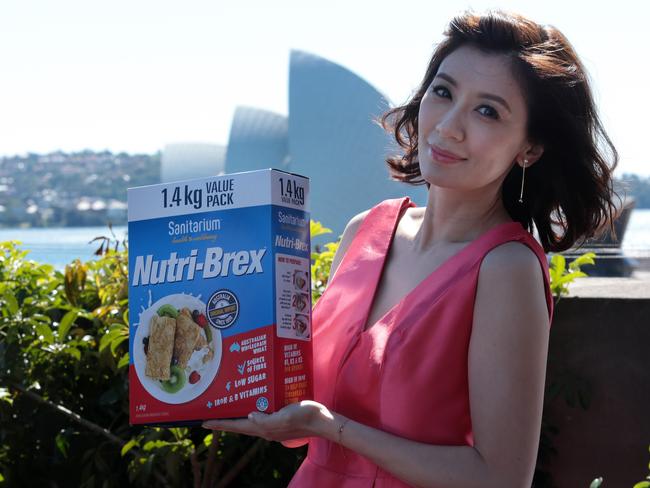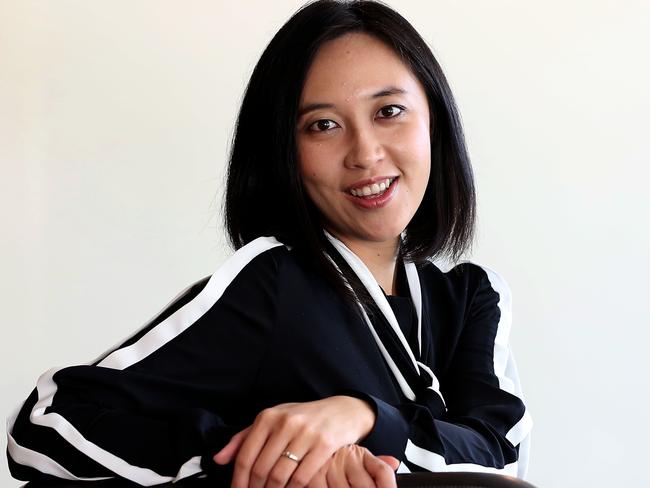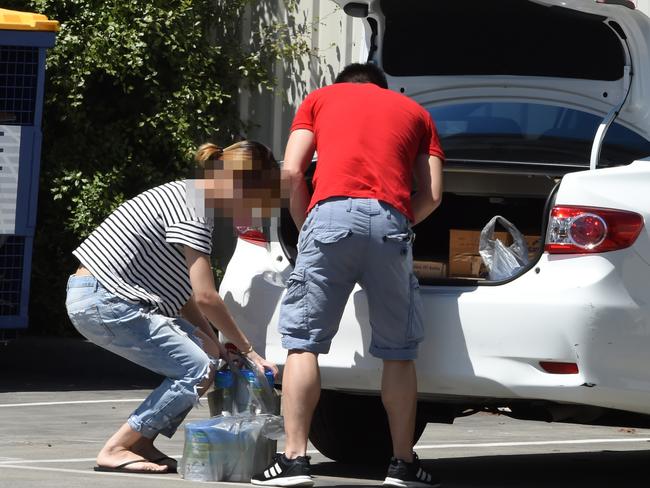Daigou sellers fear being pushed out of the market by big Australian brands
AUSSIE daigous have made millions acting as personal shoppers for people in China, but now they fear being pushed out.
THEY’VE made their fortunes reselling Aussie products to keen customers in China, but now that brands have cottoned on to the success of the daigou — the online traders making millions by recommending and shipping their products to China — companies are keen to push them out of the process.
With Australian manufacturers expanding their operations to sell directly to Chinese people, private sellers are fearing the future of the multi-million dollar daigou trade may not be so profitable after all.
International grey market traders, now better known by their Chinese name daigous, first gained public attention in Australia at the peak of last year’s baby formula shortage scandal.
Demand for Australian-made organic baby formula spiked in China, where trust in local dairy products had plummeted. The demand travelled all the way back to local Australian chemists and supermarkets where shelves were stripped by Chinese shoppers bulk-buying the product and shipping it back home.
While some kept to sending the tins of the “white gold” to their friends and family as favours, others saw the profit potential and scaled up their businesses.
Daigous were selling tins of baby formula for up to $200 each to desperate buyers, and pocketing the hefty profits.
Since daigous began to make headlines, it’s become public knowledge their sales aren’t restricted to infant products. They’re also making big bucks buying, reselling and shipping all sorts of Australian-made products from fresh food, to health and nutrition products, vitamins, and cosmetics.

Earlier this year, an appearance on a popular Chinese soap opera saw demand for Weet-Bix sky rocket and daigou fetching up to $50 a box for the cereal that retails for between $4 and $5 on supermarket shelves. Some Sydney daigou are believed to have made up to $3 million from their daigou businesses.
The success of Australian products pushed by the daigou community, whose personal approach to selling is respected and their recommendations valued by their online audience, has led the big brands to take notice and take advantage of the free marketing daigous have done for them.
Iconic Australian breakfast brand Sanitarium is one of the latest businesses to learn from the success its had in sales by the daigou community, and expand its business operations into China as a result.
Rather than relying on the daigou community, the cereal giant will sell its popular product Weet-Bix in more than 1500 bricks-and-mortar stores and target Chinese customers directly through flagship online platforms like digital marketplace Alibaba.
The brand’s expansion and focus on the Chinese market follows a number of Australian brands that have sought to sell directly to China.
Sanitarium has pledged a diverse approach to China, and said it would acknowledge and embrace the daigou community’s role in its expansion, but other companies have been more aggressive and tried to cut out private sellers completely.

Marketing expert and director of consulting company Access China, Livia Wang, told news.com.au there was great fear in the daigou community surrounding these expansions.
“This has a been a great concern especially over the last several months,” she said.
“After the awareness of the Australian product to the Chinese market, it has definitely been a worry in the daigou community that companies would try to push them out.”
Ms Wang said concern for daigou began when the model started to be noticed by the Australian media and businesses in the last two or three years.
But it has only been in recent months that sellers are starting to feel the effects of companies trying to take the daigou model into their own hands, or cut the sellers out completely.
“The daigou model hadn’t really been noticed before, so there were not a lot of competition for the community,” Ms Wang said.
“A lot of bigger players have come from Australia to set up official business models to replace the daigou model, but the daigou need to upgrade their models as well to be able to complete.”
Ms Wang said that while the trend towards businesses taking advantage of and squashing daigous out of their sales processes was making the reselling communities nervous, it was also potentially harmful to businesses.
“Some of the brands have done this very directly to the Chinese market, which means they’ve left no margins for daigou traders in Australia,” she said.
“But there is risk to brands in doing this. If people’s family and friends ask the daigou which brand to buy, the daigou could say don’t buy this brand, and as we’ve seen, people really listen to them”.
Sources tell news.com.au Australian health supplement companies that have aggressively expanded into China are feeling the wrath of the slighted daigou community who have stopped recommending their products.
Ms Wang said it was important for businesses to learn from daigous, and to work with them rather than against them.
“Brands that will be successful in the Chinese community will be the ones that say, ‘okay daigou, can we work together?’, and see their influence as an opportunity,” she said.
“At the end of the day Chinese consumers listen to daigou much more than the traders of platforms in China.”
She also recommended daigou take notice of the increased pressures on their businesses, and said she hoped the community would become more professional and better organised.

Sydney entrepreneur Tim He spent around three years as a daigou before he decided to join the big brands, and give up his private selling trade for a legitimate retail business.
His company Kiwi Buy now operates six stores across Sydney selling Australian and New Zealand products, targeting Chinese tourists, and his online store distributes product to Chinese shoppers.
While he started off promoting local products he bought from stores on WeChat and Alibaba’s daigou channel Tao Bao, he quickly realised there was a limit to how successful the informal business model could be.
“Because the daigou is just a person, like a sole trader in Australia, it’s limited for the business,” he told news.com.au.
“I did daigou for around three years and realised I couldn’t get more customers, because the channel is just for your friends and people who trust you, so I crossed over to get more business.”
Mr He said he quickly discovered the benefits of a professional working relationship with the brands he was previously reselling.
“We can do more activities with customers and I can get more support from the manufacturer because brands want to transform our shop to support their product more,” he said.
He said he has seen the pressures on the daigou community from businesses trying to block them out, and recommends his “if you can’t beat ‘em, join ‘em” strategy.

Daigous may be falling, and businesses rejoicing in the market control they are regaining in their demise, but online sales leader Alibaba group is warning against blocking the daigou community out.
Speaking to a gathering of daigous and retailers in Sydney this week, Alibaba’s director of business development for Australia and New Zealand, John O’Loghlen, said businesses needed to embrace daigous.
“Every client we talk to, if they’ve been to China and they understand China, they know the importance of the daigou community,” he said.
“There are very big (fast-moving consumer goods) companies that have not gone into China. They haven’t been involved with the opening of their Tao Bao store. They’ve stood back and let the daigou community develop their products for them, and that’s worked in some cases.”
Mr O’Loghlen said it was the goal of most companies, and for Alibaba, for daigou-driven brands to build up to have their own flagship stores, but there was still a place for daigou in their businesses.
“We’re learning a lot with the daigou community, and our clients want to do that as well,” he said.
Mr O’Loghlen also warned that the daigou community needed to become better organised if it was to survive.
He also said there were more than few bad eggs in the community bringing down the reputation of higher quality sellers.
While many brands are reluctant, Mr O’Loghlen said the best way forward for Australian businesses looking to expand their Chinese customer base was to work productively with daigous, rather than against them.
As Ms Wang said: “At the moment daigous are still the most important source to recommend your product to the Chinese market and they should not be forgotten about.”




